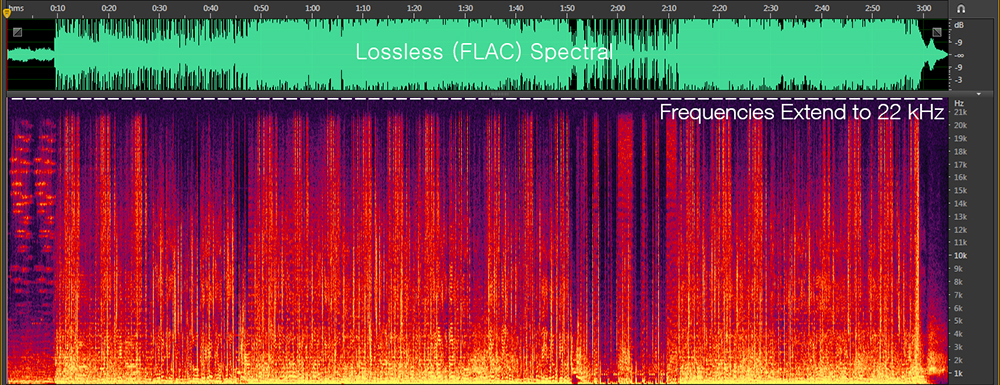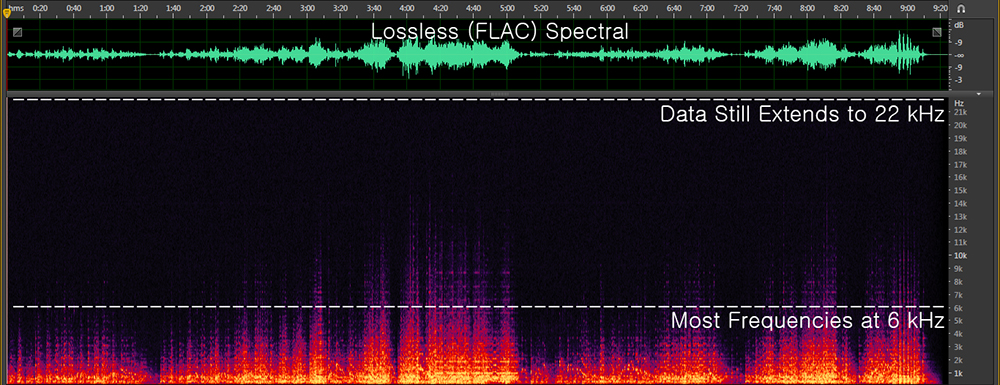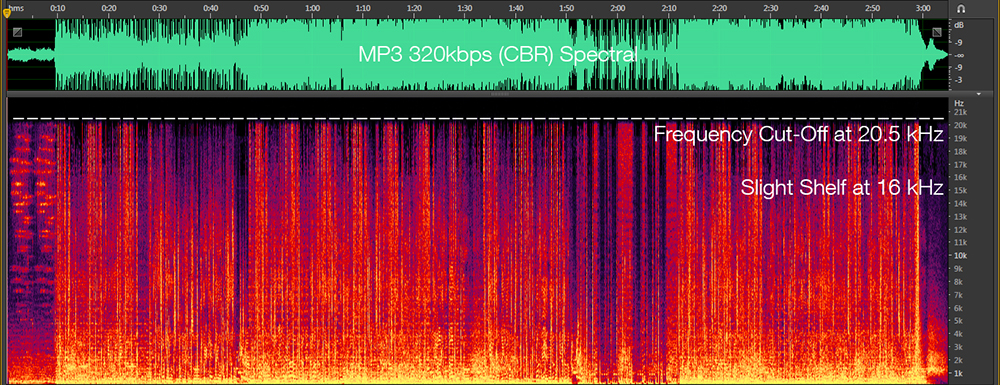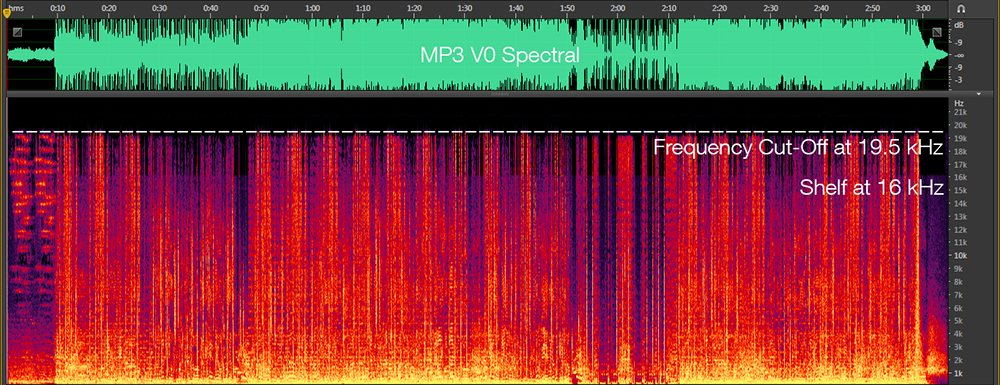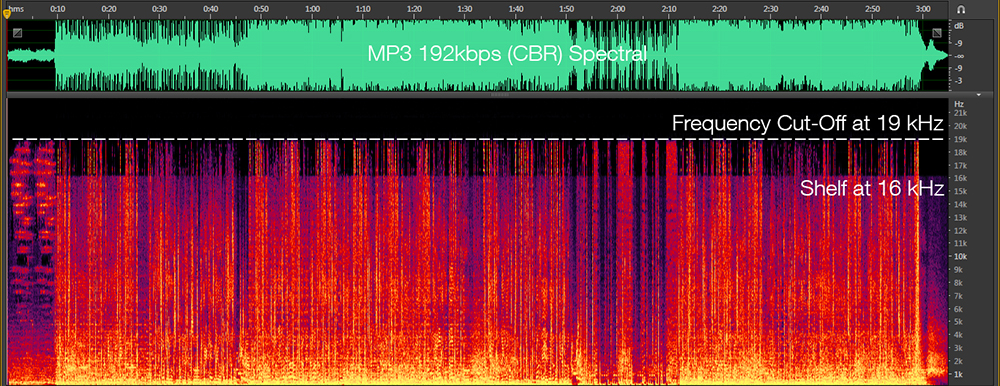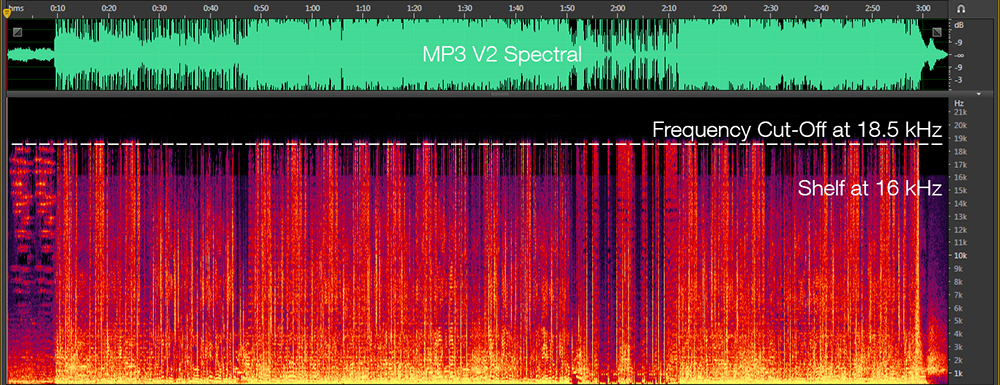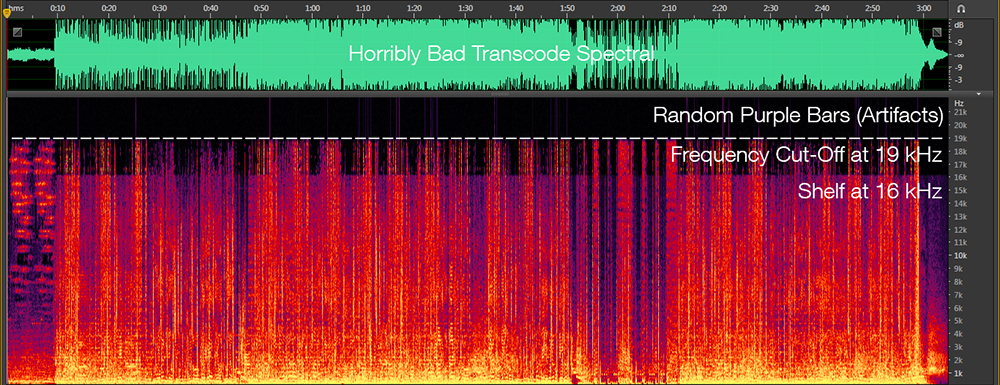Spectral Analysis
Spectral analysis is a visual way to display the data in a music file. Every music note has a specific frequency: lower notes have lower frequencies and higher notes have higher frequencies. All of the frequencies are displayed on a spectral diagram (“spectral” for short), which is a graph of all the frequencies vs. time in a music file. Frequencies are measured in hertz (Hz) and kilohertz (1,000 Hz). Humans have a hearing range from about 20 Hz — 20kHz (20,000 Hz).
Since spectrals show all the data in a file, they are helpful tools to use when you’re trying to decide whether or not a song has been transcoded. Every file has a relatively standard frequency cut-off.
Click on any of the spectrals below to view it in a higher resolution.
For example, the spectral below is of a FLAC file: the file extension is .flac, it is 21.8 MB, and it sounds okay. But whoa, does that look anything like what a regular FLAC spectral should look like? No! This file was transcoded from MP3 192kbps (CBR) to FLAC. It’s a lossy to lossless transcode, which is bad.
Since spectrals show all the data in a file, they are helpful tools to use when you’re trying to decide whether or not a song has been transcoded. Every file has a relatively standard frequency cut-off.
Click on any of the spectrals below to view it in a higher resolution.
CD / Lossless
Songs on a retail CD and lossless songs have frequencies that extend all the way to 22 kHz. Since lossless to lossless transcoding preserves all of the data in a music file, the spectral of a lossless song will look the same in FLAC, WAV (PCM), ALAC, etc. However, different genres have different-looking spectrals. The example above was a pop song, so most of the frequencies were represented. But look at this classical piano song. It looks much different, right? But it’s still a lossless spectral! Notice how “white noise” (the light purple) still extends to 22 kHz, even though those frequencies aren’t used.MP3
Different types of MP3s have different frequency cut-offs. MP3s also tend to have a “shelf” at 16 kHz (you’ll see it in the spectrals).MP3 320kbps (CBR) has a frequency cut-off at 20.5 kHz.
MP3 256kbps (CBR) has a frequency cut-off at 20 kHz.
MP3 V0 has a frequency cut-off at 19.5 kHz.
MP3 192kbps (CBR) has a frequency cut-off at 19 kHz.
MP3 V2 has a frequency cut-off at 18.5 kHz.
MP3 128kbps (CBR) has a frequency cut-off at 16 kHz.
Transcodes
How are spectrals helpful when trying to detect transcodes? Say you download a song in FLAC from a blog. The only way to verify that this song is truly a lossless file and not a transcoded file is by looking at its spectral. (Programs like AudioIdentifier are not reliable at detecting transcodes.)For example, the spectral below is of a FLAC file: the file extension is .flac, it is 21.8 MB, and it sounds okay. But whoa, does that look anything like what a regular FLAC spectral should look like? No! This file was transcoded from MP3 192kbps (CBR) to FLAC. It’s a lossy to lossless transcode, which is bad.
